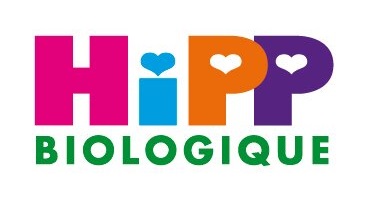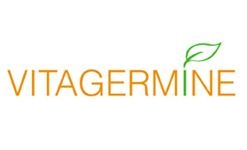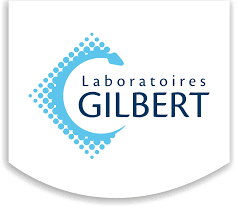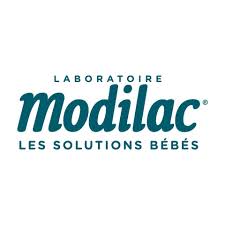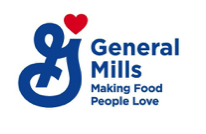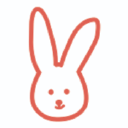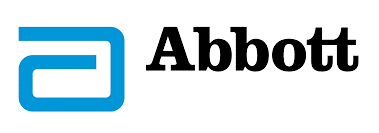Synthèse
from 2020 onwards, the global infant nutrition market, which includes infant milk and dietary diversification products, continues to experience significant trends and developments. While the French market remains a major player, particularly in infant milk, global growth is driven by strong demand from China, where parents place great trust in foreign brands, particularly after the 2008 milk scandal. The market is highly concentrated, dominated by giants such as Danone and Nestlé, which together account for 80% of the global market. There has been a noticeable shift towards organic products, with increased consumer demand leading to 30% growth in this segment. Despite the good overall performance of key brands, demographic changes such as falling birth rates are affecting market dynamics, with France witnessing a gradual decline in births. According to Euromonitor, the French market, although still a major consumer of infant formula, is expected to experience an average annual decline of 0.9% by 2024.
Confidence in brands remains a key factor in consumer choice, particularly after incidents such as the salmonella scandal at Lactalis. Distribution is mainly via supermarkets and hypermarkets, with internet sales increasing but remaining marginal. Prices are rising, with Nestlé Nutrition reporting a gross margin of 19.1%, reflecting the oligopolistic nature of the market. French infant nutrition exports grew considerably, mainly to countries such as Algeria and China. With ongoing changes in consumer preferences and demographic challenges, the infant nutrition market remains dynamic, with a nuanced balance between established brands and new market entrants responding to evolving demand
Trends and dynamics in the French baby food market
The French baby food market, valued at around 1.2 billion euros, is an evolving landscape profoundly influenced by demographic changes, cultural practices and consumer preferences. This market is mainly divided into two segments: infant milks, which capture over half the market at around 63%, and diversification foods such as compotes, purées and yogurts, which account for around 37%. One notable trend in the French market is the growing popularity of organic baby foods. With a growth rate of 30% observed over a few months in 2017, the organic segment now represents over 15% of the market. This surge is reflected in the product offering of both established giants such as Danone and Nestlé, and organic specialists such as HiPP and Vitagermine. Demand for products with the "made in France" label also supports this trend, with companies like Blédina aiming to source a significant proportion of their ingredients locally.
Despite this positive dynamic, the market faces demographic challenges. There has been a gradual decline in the number of births, with a notable drop to around 730,242. This, combined with a downward trend in the frequency of infant food consumption, indicates that the consumer base is shrinking. Another major problem facing the market is that of trust. following scandals such as the widespread contamination in China in 2008 and the more recent Lacatalis scandal in France, consumer confidence has become paramount. The reliability of brands like Blédina and Nestlé is crucial to maintaining their combined 80% market share. The market also relies heavily on the convenience offered by its products, as the rise in the average age of parents and the employment rate of women mean that time-saving and ease of use are becoming important purchasing criteria.
The distribution channels for baby food are mainly supermarkets and hypermarkets, which account for 90% of infant milk sales. Pharmacies account for a smaller but significant share, due to the positive health perception associated with their products. Online sales, though still marginal, show robust growth year on year. The strict regulations governing the French market guarantee compliance with the highest safety standards. Preservatives, colorants, artificial hormones, sweeteners and certain pesticides are strictly regulated or banned outright, and any health claims must be backed up by solid research and approved by the European authorities.
In terms of corporate involvement in the market, general multinationals are the most active in infant nutrition The infant nutrition market is a territory occupied by a wide range of companies, each putting forward distinct approaches to meeting the needs of young children and their parents. While some companies have consolidated their status as generalist multinationals in the agri-food sector, others have carved out niches as organic specialists or focus primarily on infant nutrition and health. In addition, dairy cooperatives and food distributors play a key role in shaping the baby food industry's offering.
Dominant generalist multinationals
Among the titans of the global baby food sphere, Danone and Nestlé stand out as behemoths. These two companies have established themselves not only as market leaders in France, but also on the international stage. Their extensive product portfolios, constant innovation and considerable market share make them influential trendsetters in the industry.
- Organic food pioneers: With the rise of organic baby food, companies like HiPP and Vitagermine have experienced dynamic growth. These companies have responded to consumer demand for clean, sustainable and reliable nutritional options for infants, capitalizing on the growing market segment that prioritizes organic ingredients and environmentally-friendly production processes.
- Pediatric nutrition specialists: A subset of the market is occupied by companies whose primary mission is children's health and nutrition. Nutriset, Gilbert Laboratories and Nutriben*, to name but a few, bring specialist knowledge of child health to the table. Their focus on the science of nutrition enables them to offer products that meet the specific dietary needs of infants and young children.
- Dairy cooperatives and local plants: Organizations like Sodiaal emphasize their cooperative model and their commitment to quality from their community of dairy farmers. Their market position is significant, reflecting the importance of local production and the projection of a healthy, trust-inspiring image that resonates with health-conscious parents.
- Influential food retailers: Finally, entities such as Bio c'Bon, Carrefour and Leclerc represent the retail side of the market. They not only provide distribution channels for various infant nutrition brands, but often develop their own brands as well, diversifying the options available to consumers and stimulating competition within the sector.
Each of these companies, through their capacity and strategic positioning in the market, contributes to making the infant nutrition market competitive and innovative. Whether they lead a broad product assortment, specialize in organic products, focus on specific health solutionswhether they lead a broad product range, specialize in organic products, focus on specific health solutions, rely on cooperation agreements or engage in research and development activities, they all contribute to the market's competitiveness.
à la compréhension de ce marché
Détail du contenu
 Informations
Informations
- Nombre de pages : 30 pages
- Format : Version digitale et PDF
- Dernière mise à jour : 11/07/2022
 Sommaire et extraits
Sommaire et extraits
1 Market overview
1.1 Presentation and definition of the baby food market
The infant nutrition market covers all food products for infants and children. This market is divided into 2 main segments:
- Infant milk;
- Dietary diversification foods, generally introduced after an infant's 6th month.
The health and nutritional challenges associated with infant nutrition are essential components of the market, both in terms of marketing and the regulations governing the activity.
The global baby food market is largely dominated by the US and China (a particularly promising market). France ranked seventh in terms of revenues generated in 2018.
The French infant nutrition market is dominated by two giants with around 80% of the global market share: Danone and Nestlé. The infant milk segment accounts for over half of the market. Alongside these two major players, more local companies are trying to survive, despite the market concentration of recent years. Private labels, which have to contend with the weakness of their own brands, which are less reassuring to parents, play a moderate role.
The market is largely linked to the country's demographic and cultural situation, such as birth rates, breast-feeding practices and new consumer habits. For example, the high level of trust placed in major brands, or the boom in the"organic" segment.
1.2 A global market driven by Chinese demand
Global revenues from the baby food industry are expected to exceed US$*** billion by ****, thanks to growth of *.**%.
sales trends in the baby food industry World, ****-****, US$ billion Source: ****
China is the world's largest baby food market, with sales of over $** billion.the Chinese market is proving to be the ...
1.3 The French market, a major player in infant milk
The French infant nutrition market is estimated to exceed US$* billion in ****, thanks to a CAGR of *. *% over the period. However, these growth forecasts need to be put into perspective, given the decline in the number of births in the country. The French market will therefore necessarily shrink in quantity, but ...
1.4 Foreign trade
The results presented below are based on UN Comtrade data corresponding to HS code ******: "Food preparations of flour, groats, meal, starch, malt extract or milk products; for children's consumption, put up for retail sale"Food preparations of flour, groats, meal, starch, malt extracts or dairy products; for children's food, packaged for ...
2 Demand analysis
2.1 Practicality and trust, key issues
The graph below shows the different purchasing criteria and their importance in the infant food purchasing process by parents. Confidence is the second most important criterion, followed by the availability of special offers (***).
As a result of social change, the average age of parents continues to rise steadily. The hectic pace ...
2.2 A market affected by declining demographics
The curve below shows the evolution of the total number of births in France from **** to ****. There will be a gradual decline in the number of births, reaching ***,*** in ****.
A structural decline in the birth rate can be observed in France, where the fertility rate has been set at *.** in ****. This ...
2.3 The increasingly popular "organic" segment
Ludovic Aujogue, Marketing Director at Nestlé Nutrition Infantile declared in **** that "the organic trend is an underlying trend and our desire is to meet all the expectations of all parents."[***]
evolution of the organic share of the baby food market France, ****, % Source: ****
Companies specializing in this market segment, such as HiPP ...
3 Market structure
3.1 A highly concentrated market
This statistic shows a ranking of baby or junior food brands in France from **** to ****, by number of users. In ****, an estimated one million people used Blédina. The Blédina and Nestlé brands clearly dominate the market, accounting for over **% of sales in France. These sales are boosted by the ...
3.2 The importance of brand trust
When it comes to food, consumers are particularly attentive to the quality of the products on offer, and to the brand of the product in question. This is particularly the case when food is destined for a fragile segment of the population, such as infants.
As we saw with the events ...
3.3 Production
Source: ****
3.4 Distribution
The distribution of food products is stillvia supermarkets and hypermarkets. In the case of infant milk, this accounts for **% of sales, with the remaining **% sold in pharmacies.pharmacieswhich benefit from a positive "health" signal on the products they sell.
Breakdown of infant milk sales by distribution channel France, ****, in Source: ****
Pharmacy ...
4 Offer analysis
4.1 Rising prices
The market's oligopolistic structure,product renewal with the rise of organic products, and consumers' concern for quality explain the rising prices and high margins in this market segment. For example, Nestlé nutrition's gross margin stood at **.*% in ****, the highest of all branches). [***]
The prices charged depend to a lesser extent on ...
4.2 Three main product categories
The products offered on the baby food market can be divided into three categories:
Infant formulas and baby milks: these include infant formulas (***), special milks and growing-up milks. For example: Gallia
Gallia Calisma Relais Lait *er Âge ***g(***) ; Nan Optipro * *er âge Lait Poudre ***g(***); Guigoz Lait *er âge(***).
Infant cereals: ...
4.3 New industry trends
While the market is shrinking, mainly in terms of quantities sold, the industry is betting on innovation to create growth in value. The latest trend is vegetarian baby food. In fact, baby nutrition products are tending to follow adult food trends (***), as parents are keen to educate their children in the ...
5 Regulations
5.1 A strict sanitary framework
The need to ensure quality food is a major issue for the sector, as it is the primary concern of parent-customers. And the various scandals sometimes tarnish a reputation that manufacturers then try to recuperate. Just recently, Lactalis was accused by several parents of being responsible for cases of salmonellosis following ...
5.2 ISO standards
The baby food market is one of the most regulated, because the products marketed are intended for some of the most vulnerable populations. It is therefore of interest to know which ISO standards are in force, and which nutritional labelling must be carried out in accordance with the Codex Alimentarus.
These ...
6 Positioning the players
6.1 Segmentation
- Nespresso (Nestlé)
- HiPP
- Vitagermine
- Nutriset
- Laboratoires Gilbert (GILBERT Groupe)
- Nutriben (Alter Pharmacia)
- Sodilac (Groupe Savencia)
- Even Groupe
- Sodiaal Groupe (Coopérative)
- General Mills
- Babybio Vitagermine
- Abbott Groupe
- Good Goût (H&M group)
- Blédina (Danone)
- Gerber (Neslé groupe)
- Gallia Laboratoire Bledina
- Guigoz (Nestlé)
- Lemiel (Lactalis Nutrition)
- Materna (Lact'Union)
- Milupa
- Nestlé Nidal
- Picot (Lactalis)
- Potpotam
- Youji
- Nümi
 Liste des graphiques
Liste des graphiques
- Évolution du chiffre d'affaires de l'alimentation infantile
- Evolution des naissances
- Fréquence de consommation de nourriture infantile
- Critères d'achat d'aliments infantiles par les parents
- Évolution de la part du bio sur le marché de l'alimentation infantile
Toutes nos études sont disponible en ligne et en PDF
Nous vous proposons de consulter un exemple de notre travail d'étude sur un autre marché !
Dernières actualités
Entreprises citées dans cette étude
Cette étude contient un panorama complet des entreprises du marché avec les derniers chiffres et actualités de chaque entreprise :
 Choisir cette étude c'est :
Choisir cette étude c'est :
Accéder à plus de 35 heures de travail
Nos études sont le résultat de plus de 35 heures de recherches et d'analyses. Utiliser nos études vous permet de consacrer plus de temps et de valeur ajoutée à vos projets.
Profiter de 6 années d'expérience et de plus de 1500 études sectorielles déjà produites
Notre expertise nous permet de produire des études complètes dans tous les secteurs, y compris des marchés de niche ou naissants.
Notre savoir-faire et notre méthodologie nous permet de produire des études avec un rapport qualité-prix unique
Accéder à plusieurs milliers d'articles et données payantes
Businesscoot a accès à l'ensemble de la presse économique payante ainsi qu'à des bases de données exclusives pour réaliser ses études de marché (+ 30 000 articles et sources privées).
Afin d'enrichir nos études, nos analystes utilisent également des indicateurs web (semrush, trends…) pour identifier les tendances sur un marché et les stratégies des entreprises. (Consulter nos sources payantes)
Un accompagnement garanti après votre achat
Une équipe dédiée au service après-vente, pour vous garantir un niveau de satisfaction élevé. (+33) 9 70 46 55 00
Un format digital pensé pour nos utilisateurs
Vous accédez à un PDF mais aussi à une version digitale pensée pour nos clients. Cette version vous permet d’accéder aux sources, aux données au format Excel et aux graphiques. Le contenu de l'étude peut ainsi être facilement récupéré et adapté pour vos supports.
 Nos offres :
Nos offres :
The Infant Food Market | France
- Quels sont les chiffres sur la taille et la croissance du marché ?
- Quels leviers tirent la croissance du marché et leur évolution ?
- Quel est le positionnement des entreprises sur la chaine de valeur ?
- Comment se différencient les entreprises du marché ?
- Données issues de plusieurs dizaines de bases de données
Pack 5 études (-15%) France
- 5 études au prix de 75,6€HT par étude à choisir parmi nos 800 titres sur le catalogue France pendant 12 mois
- Conservez -15% sur les études supplémentaires achetées
- Choisissez le remboursement des crédits non consommés au terme des 12 mois (durée du pack)
Consultez les conditions du pack et de remboursement des crédits non consommés.
- 02/04/2024 - Mise à jour des données financières de l'entreprise Sodilac (Groupe Savencia)
- 02/04/2024 - Mise à jour des données financières de l'entreprise Laboratoires Gilbert (GILBERT Groupe)
- 02/04/2024 - Mise à jour des données financières de l'entreprise Nutriset
- 02/04/2024 - Mise à jour des données financières de l'entreprise Vitagermine
- 02/04/2024 - Mise à jour des données financières de l'entreprise Nespresso (Nestlé)
- 02/04/2024 - Mise à jour des données financières de l'entreprise HiPP
- 03/12/2023 - Mise à jour des données financières de l'entreprise Sodilac (Groupe Savencia)
- 03/12/2023 - Mise à jour des données financières de l'entreprise Laboratoires Gilbert (GILBERT Groupe)
- 03/12/2023 - Mise à jour des données financières de l'entreprise Nutriset
- 03/12/2023 - Mise à jour des données financières de l'entreprise Nespresso (Nestlé)
- 03/12/2023 - Mise à jour des données financières de l'entreprise HiPP
- 03/12/2023 - Mise à jour des données financières de l'entreprise Vitagermine
- 14/11/2023 - Ajout des informations de l'entreprise Nümi
- 02/09/2023 - Mise à jour des données financières de l'entreprise Sodilac (Groupe Savencia)
- 02/09/2023 - Mise à jour des données financières de l'entreprise Laboratoires Gilbert (GILBERT Groupe)
- 02/09/2023 - Mise à jour des données financières de l'entreprise Nutriset
- 02/09/2023 - Mise à jour des données financières de l'entreprise Vitagermine
- 02/09/2023 - Mise à jour des données financières de l'entreprise HiPP
- 02/09/2023 - Mise à jour des données financières de l'entreprise Nespresso (Nestlé)
- 06/07/2023 - Ajout des informations de l'entreprise Youji
- 06/07/2023 - Ajout des informations de l'entreprise Potpotam
- 06/07/2023 - Ajout des informations de l'entreprise Picot
- 06/07/2023 - Ajout des informations de l'entreprise Nestlé Nidal
- 06/07/2023 - Ajout des informations de l'entreprise Modilac
- 06/07/2023 - Ajout des informations de l'entreprise Milupa
- 06/07/2023 - Ajout des informations de l'entreprise Materna
- 06/07/2023 - Ajout des informations de l'entreprise Lemiel
- 06/07/2023 - Ajout des informations de l'entreprise Guigoz
- 06/07/2023 - Ajout des informations de l'entreprise Gallia
- 04/07/2023 - Ajout des informations de l'entreprise Gerber (Neslé groupe)
- 04/07/2023 - Ajout des informations de l'entreprise Blédina (Danone)
- 04/07/2023 - Ajout des informations de l'entreprise Good Goût (H&M group)
- 28/06/2023 - Ajout des informations de l'entreprise Abbott Groupe
- 26/06/2023 - Ajout des informations de l'entreprise Babybio (Vitagermine Groupe)
- 20/05/2023 - Mise à jour des données financières de l'entreprise Sodilac (Groupe Savencia)
- 20/05/2023 - Mise à jour des données financières de l'entreprise Laboratoires Gilbert
- 20/05/2023 - Mise à jour des données financières de l'entreprise Nutriset
- 20/05/2023 - Mise à jour des données financières de l'entreprise Vitagermine
- 20/05/2023 - Mise à jour des données financières de l'entreprise HiPP
- 20/05/2023 - Mise à jour des données financières de l'entreprise Nespresso (Nestlé)
- 19/02/2023 - Mise à jour des données financières de l'entreprise Laboratoires Gilbert
- 19/02/2023 - Mise à jour des données financières de l'entreprise Sodilac (Groupe Savencia)
- 19/02/2023 - Mise à jour des données financières de l'entreprise Nutriset
- 19/02/2023 - Mise à jour des données financières de l'entreprise Vitagermine
- 19/02/2023 - Mise à jour des données financières de l'entreprise HiPP
- 19/02/2023 - Mise à jour des données financières de l'entreprise Nespresso





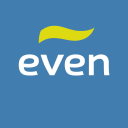 A2S et Sovéfrais fusionnent au sein de So Breizh | Fusion de A2S et Sovéfrais sous la marque So Breizh - 01/03/2024
Even Distribution fusionne deux entreprises, SovéFrais et A2S, pour créer So Breizh.
So Breizh est basé à deux endroits : Ploudaniel (Finistère) et Kervignac (Morbihan).
L'entreprise se spécialise dans la distribution de produits frais et surgelés.
La coopérative d'Even Distribution compte s'appuyer sur Krill, un réseau de 8 PME fournisseurs, dont Gastronomie Service, Gel 43, Prenot Guinard et So Breizh.
So Breizh possède deux entrepôts de préparation de commandes, 7 antennes de livraison et un atelier de découpe de viande fraîche.
L'entreprise dessert 5.000 clients de la restauration collective ou du commerce de proximité.
So Breizh a un chiffre d'affaires de 97 millions d'euros.
A2S et Sovéfrais fusionnent au sein de So Breizh | Fusion de A2S et Sovéfrais sous la marque So Breizh - 01/03/2024
Even Distribution fusionne deux entreprises, SovéFrais et A2S, pour créer So Breizh.
So Breizh est basé à deux endroits : Ploudaniel (Finistère) et Kervignac (Morbihan).
L'entreprise se spécialise dans la distribution de produits frais et surgelés.
La coopérative d'Even Distribution compte s'appuyer sur Krill, un réseau de 8 PME fournisseurs, dont Gastronomie Service, Gel 43, Prenot Guinard et So Breizh.
So Breizh possède deux entrepôts de préparation de commandes, 7 antennes de livraison et un atelier de découpe de viande fraîche.
L'entreprise dessert 5.000 clients de la restauration collective ou du commerce de proximité.
So Breizh a un chiffre d'affaires de 97 millions d'euros.
 Sodiaal paiera pour la réduction de carbone des fermes membres - 14/02/2024
Sodiaal paiera pour la réduction de carbone des fermes membres - 14/02/2024
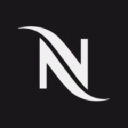 Nespresso veut rendre plus vert son café en dosette - 05/01/2024
Nespresso veut rendre plus vert son café en dosette - 05/01/2024
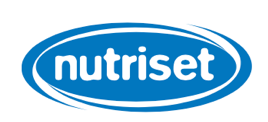 Face aux crises dans le monde, l'usine normande de Nutriset tourne à plein régime - 25/11/2023
Face aux crises dans le monde, l'usine normande de Nutriset tourne à plein régime - 25/11/2023
